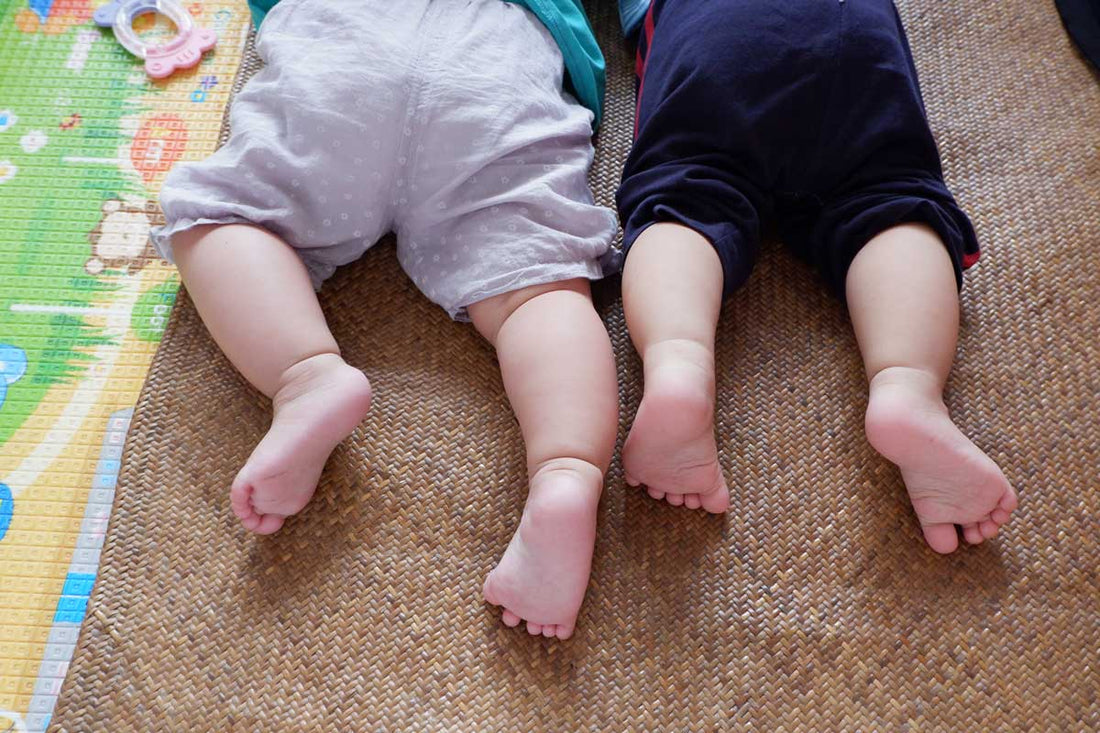What Are Developmental Milestones?
Developmental milestones are a set of age-specific tasks or functional skills that most children are expected to have at a certain age range. But there are instances when a child experiences developmental delays, lagging behind their peers when it comes to growth — and this is more common than you think.
In fact, it was reported in 2016 that 52.9 million children around the world had identifiable developmental delays. There are many kinds of developmental delays, such as problems with motor skills, cognitive skills, and social skills.
Why track developmental milestones?
Every child develops at their own pace. But there are still milestones you'll need to pay attention to, to track your child's progress. This will also allow you to seek intervention as soon as possible. Sometimes, rather than there simply being delays, these traits could also point to disorders. For language acquisition, young children naturally pick up what they hear to learn how to speak.
Having language delays may mean a child simply needs extra attention — such as if the people around them rarely spoke with them, which didn’t give them much of a chance to pick up the language. But sometimes, a delay can signal a disorder that will need personalized treatment. This means a child may need special education services.
Meanwhile, having delays in motor skills like crawling or grasping things may be attributed to a baby not developing muscles at the same rate as others — such as the case with premature babies. For this, a doctor can suggest encouraging more physical activity. However, motor skill delay may also be a result of conditions such as cognitive delays, myopathy, or ataxia. If so, then the baby may need physical or occupational therapy.
As such, the earlier you can spot developmental delays the better since your child can receive treatments that can help them make progress or even catch up to milestones. Below are just some developmental milestones that you track:
Developmental milestones to track
1 month
There are a few things to expect by your baby’s first month.
- For one, they should be able to bring their hands within the range of their eyes and mouth and move their head from side to side when they’re on their stomach.
- They’re expected to recognize sounds and turn towards familiar ones.
- They also show their preferences and dislikes for smell and touch — such as preferring sweet over bitter smells, and soft over coarse surfaces.
- At this time, babies like being snuggled or touched, so baby massages can let you satisfy this need. This is also important since it establishes a bond between you two.
7 months
- By seven months, your child should be able to roll from back to stomach and vice versa, sit without the support of their hands and transfer objects from hand to hand.
- For language skills, they should respond to their own name, as well as respond to sounds by also making sounds.
- In terms of social milestones, your baby should start enjoying social play and show affection to people who care for them.
There’s no way of telling exactly when a baby will perfect a certain skill or show a particular attitude. As such, it’s important to continue interacting with them to help push their development forward.
1 year
As your baby hits their first birthday, they should already have a range of skills.
- For one, they’re expected to creep on hands and knees, pull themselves up to stand, walk a few steps without support.
- They can also explore objects in different ways, such as putting them in and out of a container, shaking, or dropping them.
- You’ll notice that they’re paying more attention to speech and they try to imitate what they hear too.
- They enjoy imitating people in play and show specific preferences for people and toys.
To continue supporting their development, you can get them toys for one-year-olds. An animal push-and-pull toy, for instance, can hone a child’s gross motor skills.
These milestones aren’t necessarily hard requirements for your children. But if you notice that they don’t seem anywhere near a certain milestone, it may be best to consult with a health professional regarding steps to take.
Article contributed by Jessica Ryans

